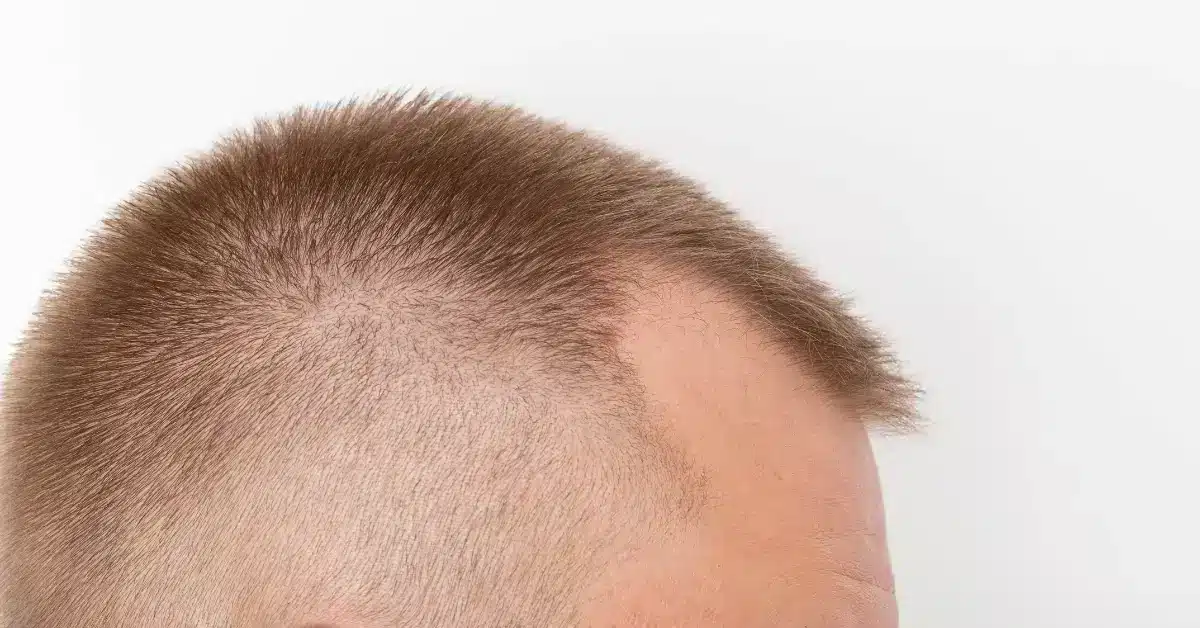Unleashing the Power of Finasteride as DHT Blocker
Hair loss is a common concern for many people, and it can be distressing to watch your once-lush locks thin and fall out.
Many treatments for hair loss have been developed over the years.
But one that has gained popularity is Finasteride, a DHT blocker.
DHT, or Dihydrotestosterone, is a hormone that plays a crucial role in hair loss by shrinking hair follicles.
While Finasteride may not cure hair loss, it is undoubtedly a step in the right direction.
It offers a safe and effective treatment option for males looking to slow down the progression of these conditions.
It can help improve the overall quality of life for many people.
This article will explore the science behind Finasteride and its benefits for males with hair loss.
What is DHT
DHT is a hormone derived from Testosterone through the action of the 5-alpha reductase enzyme.
It is more powerful than Testosterone and is essential in several bodily processes.
DHT is primarily linked to the development of male traits during puberty.
These include hair growth on the face and body, a deeper voice, and the development of the male reproductive system.
But DHT can also cause hair loss in people genetically prone to it.
It does this by shrinking hair cells and shortening the hair growth cycle, which causes hair to thin and eventually fall out.
The link between DHT & balding men
There is a clear link between DHT and guys losing their hair.
When DHT links to receptors on hair follicles, they shrink and stop making hair.
By blocking the activity of 5-alpha reductase, the enzyme that converts Testosterone into DHT, medications like Finasteride can reduce DHT levels in the body.
It slows down or stops hair loss and even sometimes stimulates hair regrowth.
A study was conducted to see the efficacy of Finasteride in preventing male pattern hair loss.
It was concluded that oral Finasteride promotes scalp hair growth and prevents hair loss in significant proportion.
But it’s important to remember that the exact causes of hair loss are complicated and involve many factors.
DHT is one of many things that can cause men to lose hair.
Is Finasteride a DHT blocker

Yes, Finasteride blocks the hormone DHT.
It works by stopping the enzyme 5-alpha reductase from turning Testosterone into DHT in the body.
Finasteride lowers the amount of DHT in the body by stopping this enzyme.
Research has shown that Finasteride cuts prostatic DHT levels by up to 90% and blood DHT levels by 70%.
A study was conducted in 1992 to observe Finasteride’s effectiveness in treating Benign Prostatic Hyperplasia.
The study concluded that there was a significant decrease in urinary obstruction.
People with Androgenetic Alopecia (AGA) can use it to slow or stop hair loss.
Finasteride has also been successful in treating Benign Prostatic Hyperplasia (BPH).
It reduces the size of the prostate gland, which is also affected by DHT levels.
Finasteride is a potent and commonly used drug that has been shown to stop the production of DHT.
This makes it an essential tool for treating hair loss and BPH.
Best DHT blocker

Most of the time, the best DHT blockers are medicines that stop the enzyme 5-alpha reductase from turning Testosterone into Dihydrotestosterone (DHT).
Finasteride and Dutasteride are the two DHT blockers that doctors give out the most.
The FDA has approved Finasteride to treat baldness in men.
As per a study published by the National Center of Biotechnology Information, Finasteride is effective in 59.5% of AGA patients.
However, none of the patients reported hair growth on other body parts except their heads.
These medicines can help lower the amount of DHT in the body and slow hair loss or the growth of the prostate gland.
But it's important to remember that DHT blockers don't work the same way for everyone.
You should talk with a clinician to determine the best choice for you.
Conclusion
Finasteride is a great DHT blocker that gives hope to people losing their hair.
Its ability to stop Testosterone from turning into DHT is an excellent way to prevent hair loss from worsening and help hair grow back.
As with any drug, it's essential to talk to a doctor about how well it fits your needs, what side effects you might experience, and what the best course of action is for you.
With Finasteride, you can stop hair loss and feel better about yourself.
Frequently Asked Questions
Do I have to take DHT blocker while on Finasteride?
Can you take a DHT blocker with Finasteride?
Does Finasteride completely block DHT?
How quickly does Finasteride block DHT?
Is Finasteride the best DHT blocker?
WowRx refers to credible, authoritative sources for our content. If you’re curious about how we ensure the integrity of our content, we encourage you to read our Content Information Policy.






